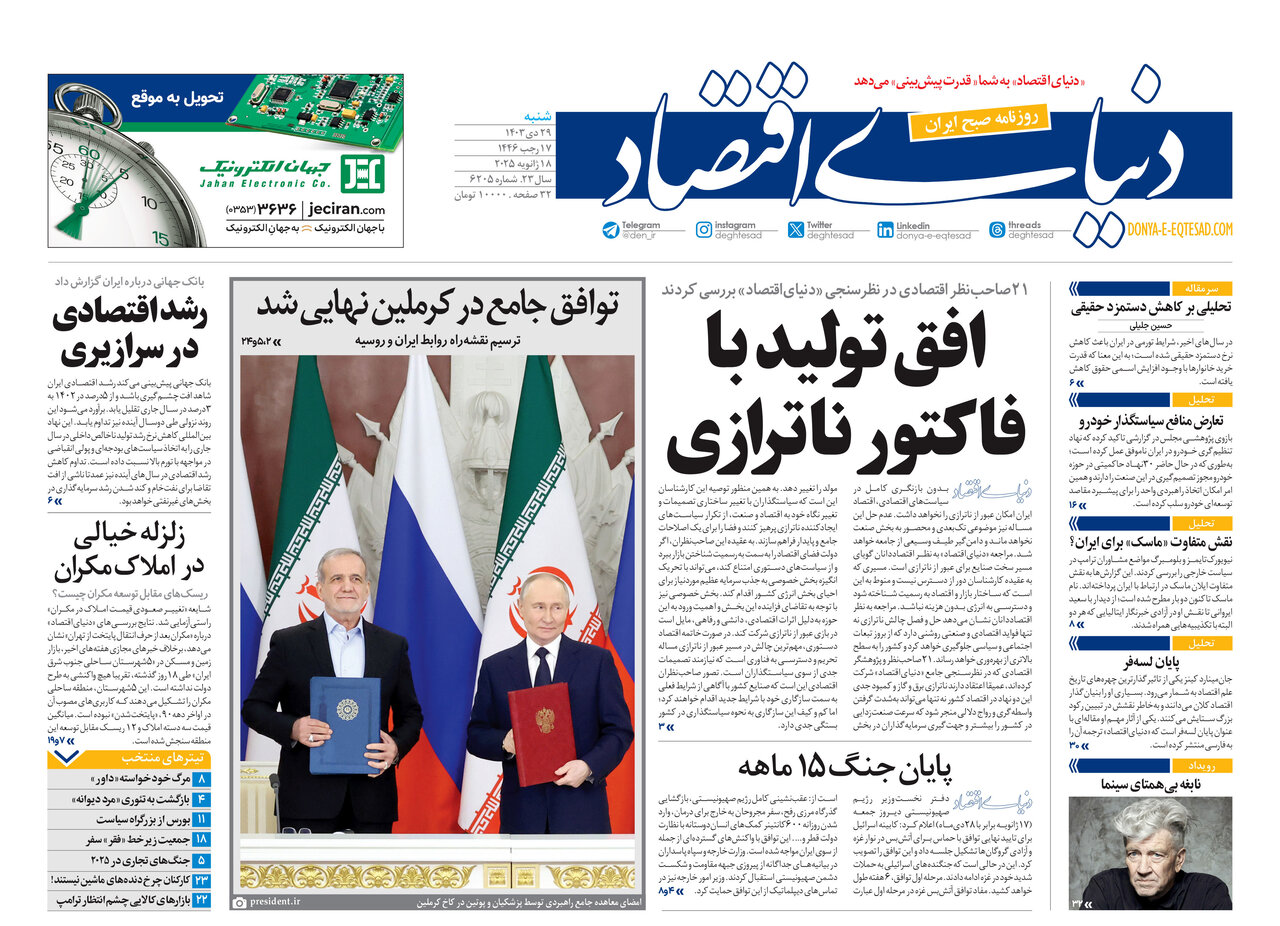The sanctions pressure on Iranian oil export

TEHRAN - In a note, Donya-e-Eqtesad addressed sanctions on Iran's oil export and said: According to the Wall Street Journal, Iran has recently sold nearly 3 million barrels of its oil out of the 25 million barrels held in China's storage.
These efforts are made while Iran's economy is under severe pressure from American sanctions and high inflation. The new U.S. sanctions against Iran and Russia's oil exports have disturbed the global market, and China, which is the largest buyer of Iranian oil, has stopped the official import of Iranian oil due to the pressure of the sanctions and continues to buy oil only through unofficial channels. Now Iran's crude oil exports may decrease by one million barrels per day by summer. This may lead to Iran's reaction. Iran's reaction may not be predictable. The Economist magazine advises that in such conditions and in an optimistic scenario, Iran should take steps towards reaching a basic agreement with the United States and negotiate for the permanent lifting of sanctions.
Siasat-e-Rooz: Historic treaty
In an analysis, Siasat-e-Rooz discussed the agreement between Iran and Russia and the West's view toward it. The paper said: Global and regional developments entail adopting common approaches on some issues to deepen their relations. The visit of the Iranian president to Russia and his meeting with Putin, the signing of a 20-year partnership agreement, and strategic cooperation between the two countries are a big step towards thwarting the American conspiracies. The Western media is trying to trivialize it. But the implementation of all the terms of the treaty can lead to economic prosperity for both countries. America is angry with the elimination of the dollar in exchanges between Iran and Russia. This will lead to the spread of de-dollarization among other countries and will prove that economic transactions can be done in better and easier ways without dollars. The Iran-Russia treaty is historic because. The reactions of the enemies prove its importance.
Sobh-e-No: France is safe haven for terrorists
In an interview with Abolfazl Zohrevand, an expert on political issues, Sobh-e-No discussed the action of France in hosting the conference of the MKO group. Zohrevand said: The recent events in France are a warning that shows we should change our position towards the West and adopt a policy that the Iranian nation deserves, otherwise we will face the same problems as before. Even now, France is pursuing activities in Lebanon and Iraq; including the attempt to disarm Hashd al-Shaabi (PMU/PMF) and the Axis of Resistance. The ultimate goal is to undermine Iran. These measures are aimed at deceiving public opinion and changing the political structure in Iran like Syria. When the enemy openly tries to undermine the country, we must set our policies resolutely. With such an enemy, you cannot move on the path of building trust. It is not surprising that some people consider France's actions as a move against Iran's national interests and security, because this is the nature of France, America, and the West. Their main goal is to defeat the Islamic resistance movement and undermine the Islamic Republic of Iran.
Shargh: Time to demonstrate Iran's diplomatic ability
Shargh dedicated its editorial to the situation in Lebanon and Syria and suggested that Iran must deal with the new developments in these two countries. It wrote: Now a new chapter has begun in the history of Lebanon and it is very important to know the course of future developments in the country and how the Islamic Republic of Iran will deal with the new conditions. The ceasefire between Hezbollah and the Zionist regime is a turning point in the political and geopolitical developments of the Middle East. It should not be forgotten that the political-strategic geography of the Middle East is still unstable. Although the Islamic Republic of Iran's connection with Hezbollah through Syria has been cut off for an indefinite period, it is not believed that the absence of Iran and Russia in Syria will be filled by Turkey and its Western and Arab allies. New changes and developments in Syria and Lebanon have created an opportunity for the active diplomacy of the Islamic Republic of Iran. It seems the time has arrived for Iran to show its diplomatic abilities in interacting with the new Syrian and Lebanese statesmen.
